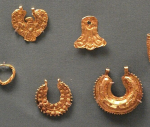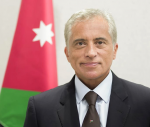You are here
Iran’s regional sway
Oct 21,2014 - Last updated at Oct 21,2014
Iran could emerge as a winner from the open-ended war on the Islamic State (IS), which has shifted attention from Tehran’s attempt to expand its sphere of influence and improve its position as a regional power broker.
With most countries in the region focused on stemming the tide of IS in Iraq and Syria, Tehran is pushing ahead with its own dubious agenda.
Saudi Arabia’s long-standing suspicions of Iran’s regional goals have been confirmed this week when a senior adviser to the Islamic republic’s supreme leader Ayatollah Ali Khamenei voiced his country’s unequivocal support to the Houthi rebellion in Yemen.
Ali Akbar Velayati told a group of Yemeni clerics in Tehran that “Iran supports the rightful struggle of [the Houthis] in Yemen, and considers the movement part of the successful Islamic Awakening”.
He was quoted as saying that he hopes the Houthis will play a similar role as that of Hizbollah in Lebanon.
These bold declarations should sound alarm bells in Riyadh and other Arab capitals.
Iran never hid its sympathy and support for the Houthi insurgency in Yemen, but now its role in destabilising that country has become clearer.
The stunning takeover by the Houthis, a Shiite sect comprising 20 per cent of the population, of Sanaa and most of northern and western Yemen is a major challenge to Saudi Arabia and a direct threat to the security of the Gulf Cooperation Council (GCC) countries.
Last week, Saudi Foreign Minister Saud Al Faisal lashed out at Iran, accusing it of having forces in Syria, Iraq and Yemen, and describing it as “part of the problem” in these countries.
GCC interior ministers issued a statement last week saying that the group “would not stand idle in the face of factional foreign intervention in Yemen whose security and the security of the GCC states is one and the same”.
Beleaguered Yemeni President Abed Rabbo Mansour Hadi had repeatedly accused Iran and Hizbollah of aiding and training the Houthi rebellion. Under pressure from the insurgents, he was forced to release members of Iran’s Revolutionary Guards recently.
Tehran’s deep involvement in Yemen is the latest in a series of Iranian interferences in the affairs of Arab countries.
Its backing of the Shiite uprising that has destabilised Bahrain is clear and its role in fomenting sectarian strife in Iraq is well documented.
Tehran’s support of Bashar Assad in Syria has enabled the regime to carry out atrocities against its own citizens, killing hundreds of thousands and displacing millions.
Its support of Hizbollah in Lebanon derailed the political process in that country and made Iran a powerful player in Lebanese affairs.
Today, Iran is calling the shots in Baghdad and it is not surprising that Prime Minister Haidar Al Abadi’s first foreign visit since taking office was to Tehran.
The sectarian divide that now cripples Iraq is largely due to the policies of his predecessor, Nouri Al Maliki, who had enjoyed the blind support of Iran for years. And it is no secret that his policy of marginalising the Sunnis of Iraq crippled the political process in that country and allowed extremists such as Al Qaeda and IS to infiltrate the Sunni governorates.
While Tehran is not part of the US-led coalition fighting IS, its role in Iraq and Syria has a major influence on the outcome of that campaign.
Abadi has promised to reverse the policies of his predecessor and include the disgruntled Sunnis in the political process in an attempt to close the sectarian divide. But Shiite militias fighting IS militants have been accused of persecuting and killing Sunnis. These militias are under the command of Qassem Soleimani, the head of Iran’s elite Quds Force, who is said to be active in Iraq.
Furthermore, the recent appointment of Mohammed Ghabban, a key member of Iranian-backed Badr organisation, as interior minister will do little to lessen the fears of Iraq’s Sunnis.
The Badr paramilitary group is accused of killing thousands of Sunnis; it is headed by Hadi Amiri, a Shiite fanatic who has allegedly led death squads.
Such developments will only enhance Iran’s grip on Iraqi politics and will do little to end the sectarian rupture and appease the Sunnis.
By ignoring the Iranian role in Iraq and Syria, Washington’s effort to drive out IS and other extremists from these war-torn countries will prove difficult if not impossible.
The focus on IS has presented Tehran with the opportunity to expand its regional influence. Its controversial role in Iraq, Syria, Lebanon, Bahrain and now Yemen gives credence to Faisal’s description of Iran as being part of the problem.
The fear is that by the time the region recovers from the IS threat, Iran will have achieved its objective of emerging as a regional superpower.
The writer is a journalist and political commentator based in Amman.













